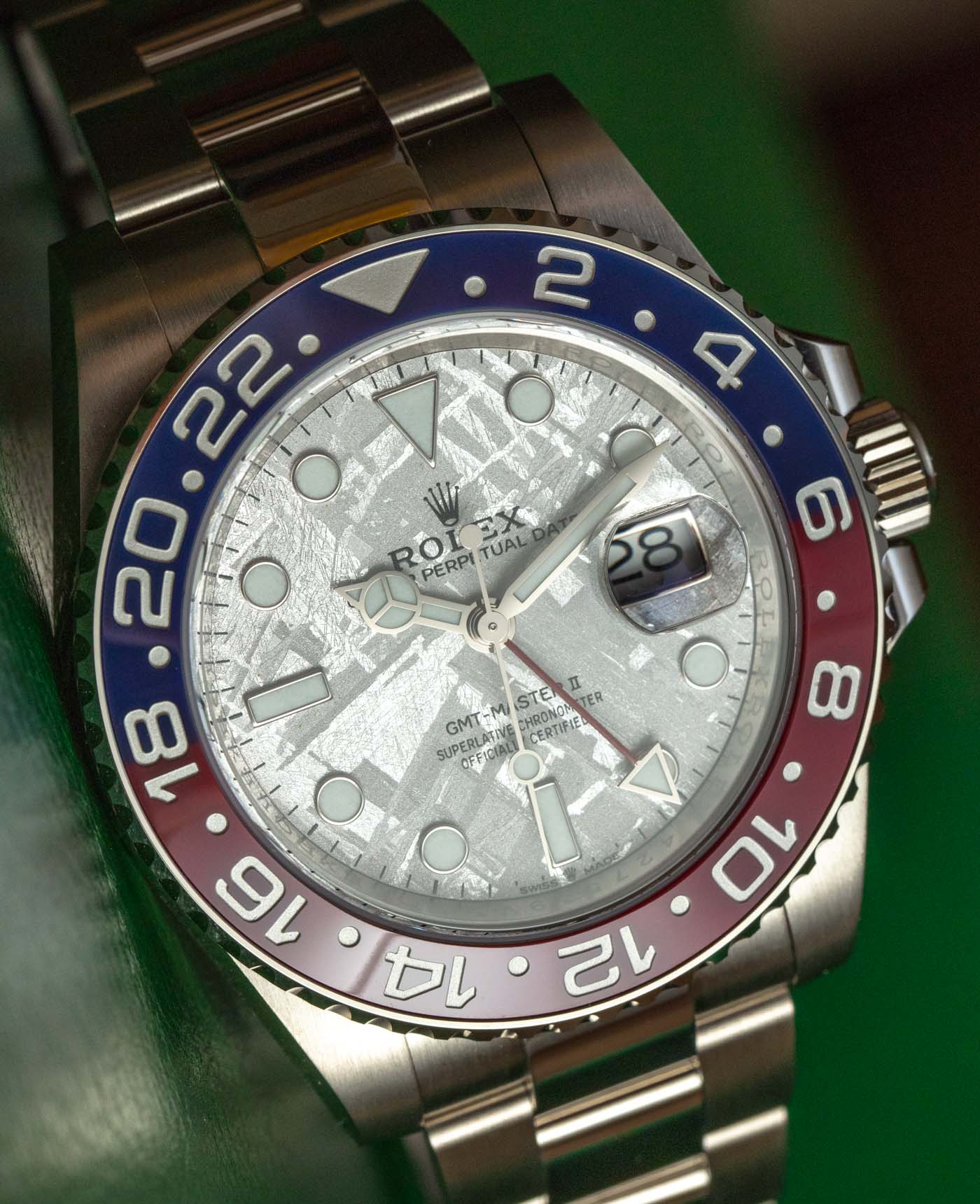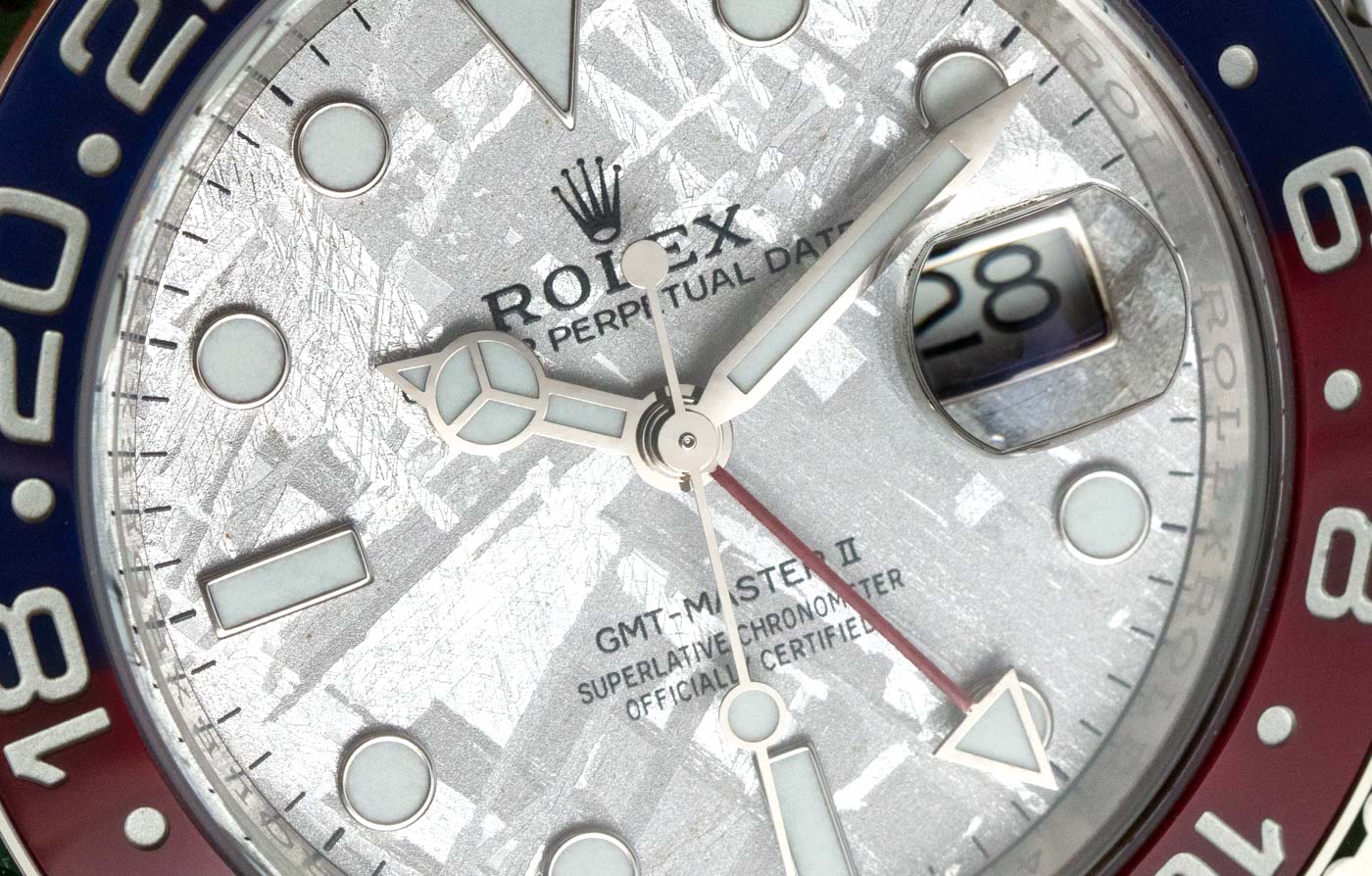
Rolex works in mysterious ways. Some will find this modus operandi annoying and dissociating, and others will experience it as tirelessly fascinating. I myself have slowly converted from the former to the latter group. All this is to say that, when there is something — anything — new from Rolex, I ask myself: “Why has Rolex done this?” When it comes to this article’s subject, the Rolex GMT-Master II 126719BLRO Pepsi with meteorite dial, I think I’ve got it figured out on first sight.
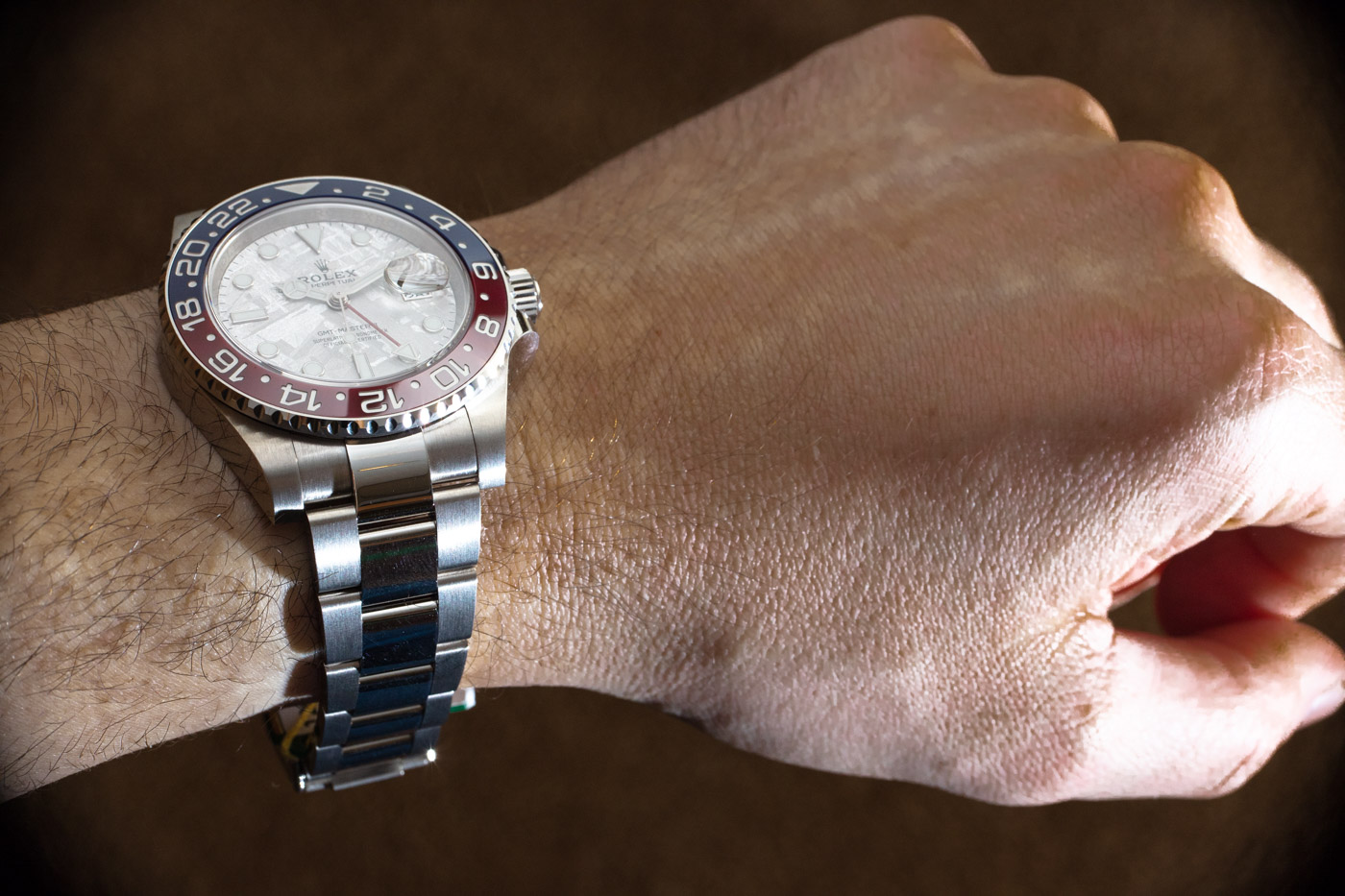
When the first 21st century Rolex Pepsi GMT debuted in 2014, owning a Rolex watch was out of reach for me, and I was nonetheless very excited about this release. I remember being on the edge of my seat and seeing the first official Rolex video of this watch drop. I was astounded when I realized it was exclusively made available in 18k white gold, so priced well over 30k, about four times (!) higher than what steel GMTs retailed for at the time.
In 2018, Rolex dropped the bomb by launching the steel-version Pepsi, sold exclusively on the five-link Jubilee bracelet in an effort to differentiate the steel variant from the much more expensive all-white-gold watch for which customers had been shelling out considerable sums for a number of years. Many would agree that the outrage has been mitigated, but it is true that, even on the Jubilee, the steel Pepsi is a very tempting and extremely appealing proposition for many in the brand’s current lineup.
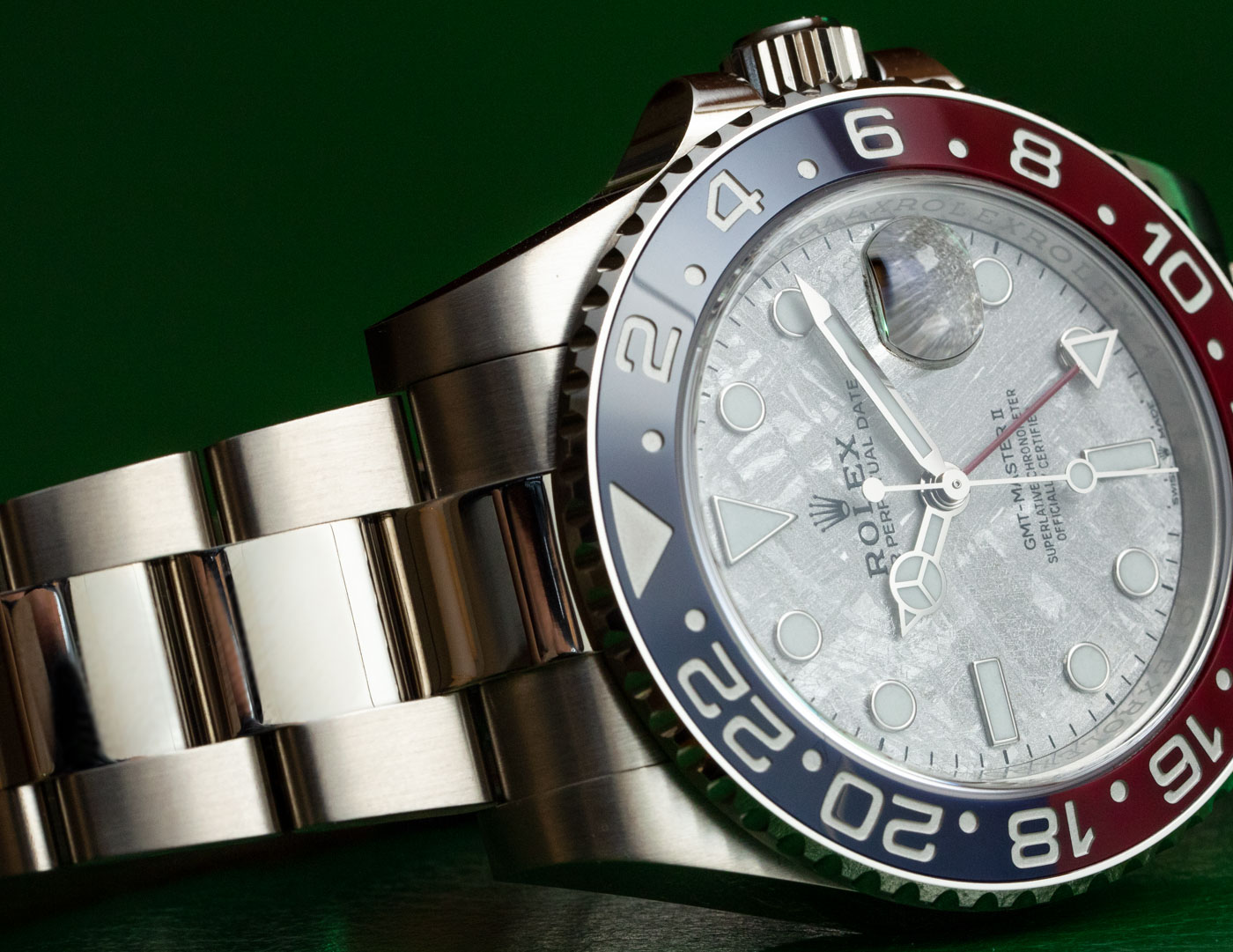
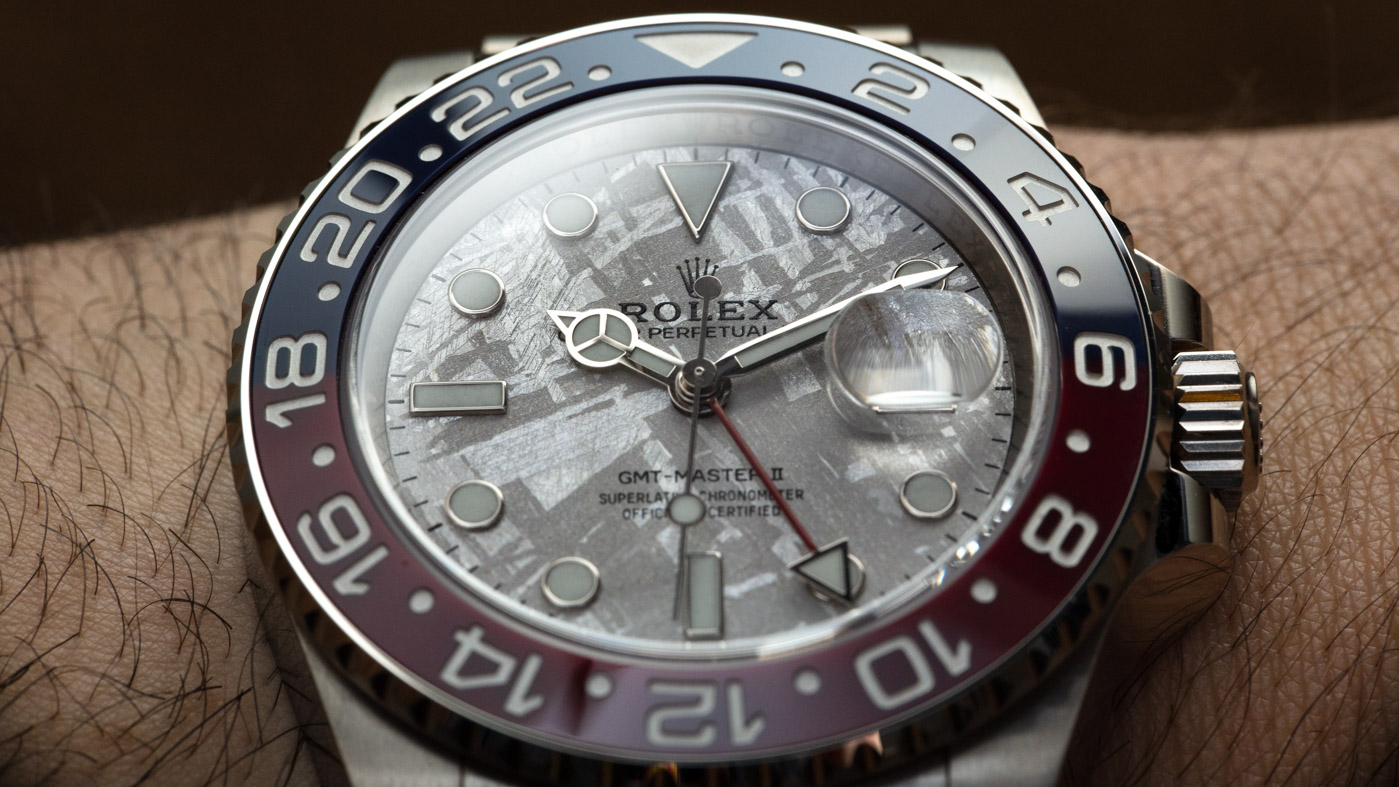
2019 saw that steel Rolex GMT Pepsi untouched, while the 40mm-wide, 18k white-gold version got an expectedly well received meteorite dial option that is, naturally, not configurable for any other version, just the 18k white gold GMT-Master II 126719BLRO reference. I think it’s fairly easy to see where this might be coming from: Since the steel Jubilee Pepsi’s debut, the 18k white gold Pepsi has presumably dipped in demand — probably to an extent that was noticeable to Rolex itself. In response to this, Rolex might have been seeking a solution that would help set this precious version that much more distinctively apart from the (un-)common man’s steel. I say “uncommon” because, despite its 8,800 CHF retail price, the steel version has been comfortably trading for over double retail out there in the very real world. (Anyone who pays into five figures for the steel GMT is out of his mind, in my estimation.)
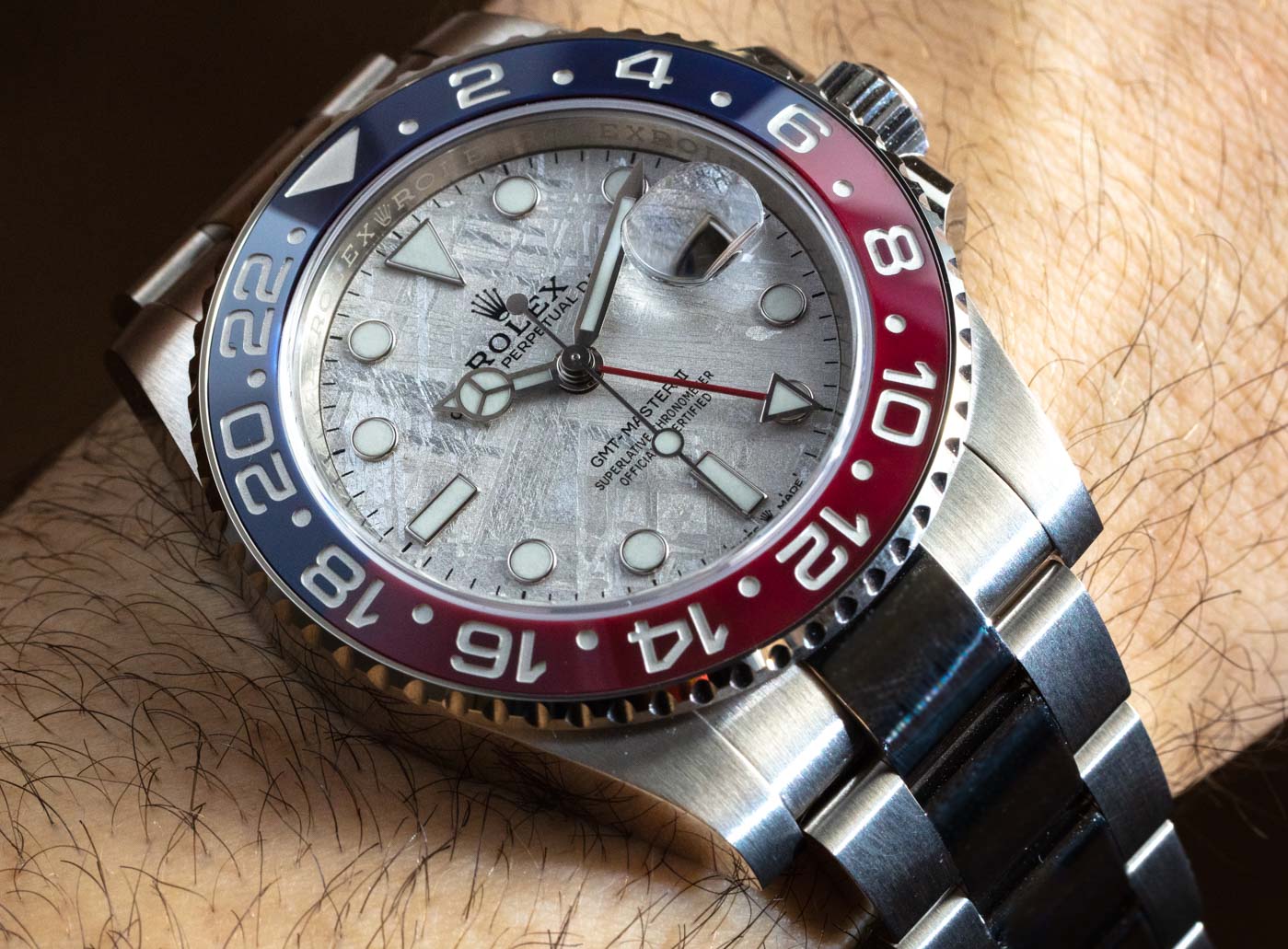
Rolex putting some lipstick on one of its temporarily less desirable models will hardly be a win for anyone, and so this meteorite-spruced version appears to be a self-explanatory move.
What is weird, though, is that Rolex doesn’t dedicate any effort to explaining how or why it is using meteorite dials. Even on its official product page on the website, directly under the cropped image of just the dial and the all-caps text of “METEORITE DIAL,” there stands just one incredibly bland piece of copy-paste text, not even mentioning the base material of this apparently special component. “The dial is the distinctive face of a Rolex watch… Ensure perfection….,” and so on.
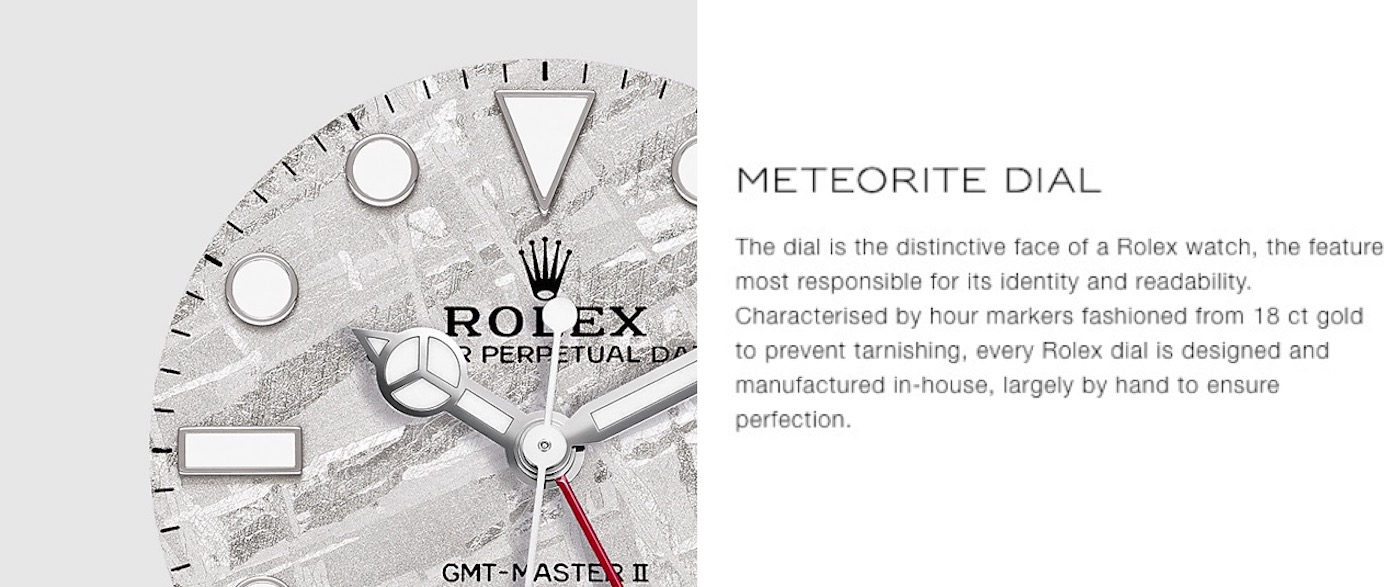
I say this because most all specially engineered aspects of Rolex watches, sooner or later, are somehow explained by the brand. That is because Rolex dedicates tremendous effort to solving problems and answering questions many other manufacturers gloss over. For its beautifully gem-set watches, Rolex dedicates special attention to praising its in-house gemological know-how. What the heck — even its Oysterflex elastomer strap Rolex describes in detail that leaves none of its cool engineering feats to the imagination. And yet, I have managed to find absolutely zero additional information on these meteorite dials from Rolex — anywhere. Not in product descriptions, PDFs, press site documents, or anywhere else. Not even our personal meeting at Baselworld revealed any additional information.
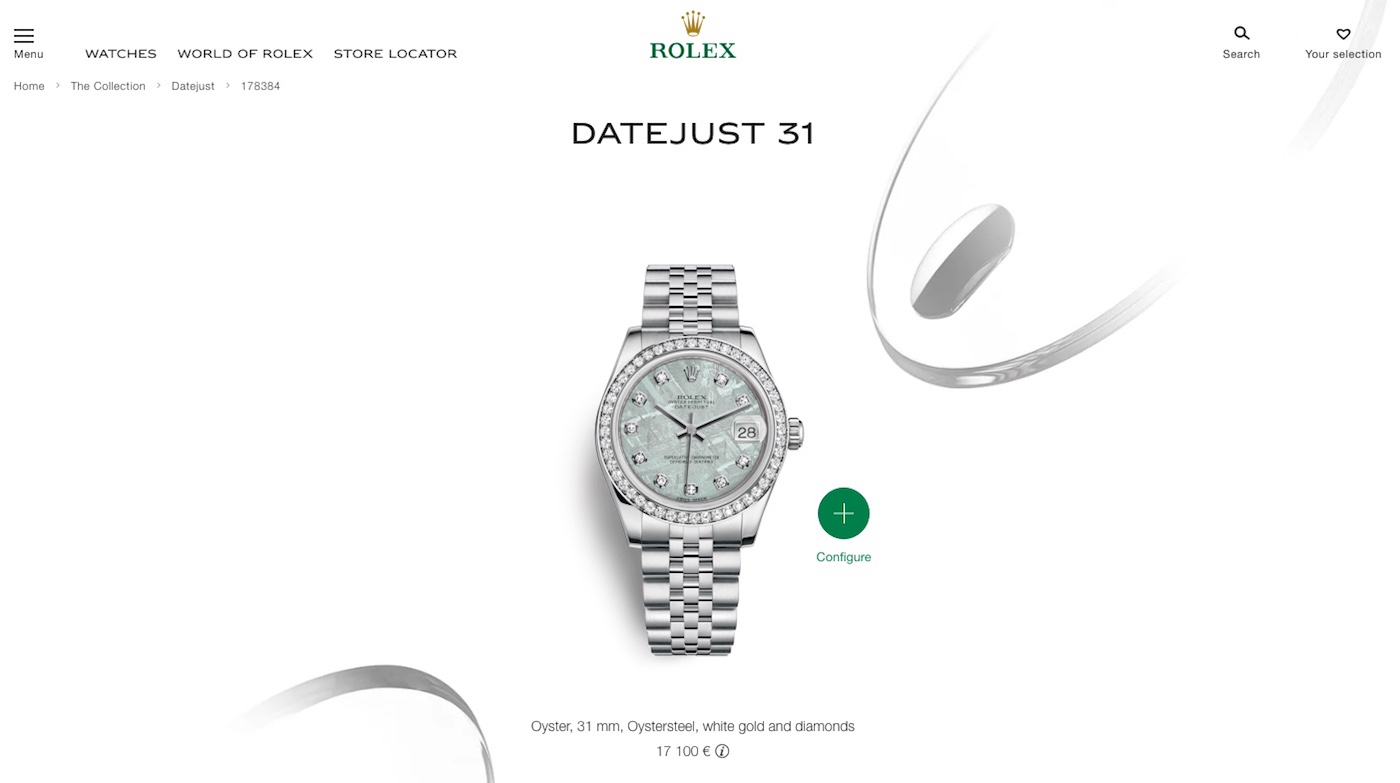
What I can say, though, is that if you feel like owning a meteorite dial Rolex, you have but a handful other options too: Currently in production are the Day-Date 40 (in all-white gold), the Pearlmaster 34 (also in all-white gold) and, surprisingly, the Datejust 31 in steel, with an 18k white gold bezel. That’s right. Certainly among the strongest, and perhaps lesser known, propositions in current Rolex production is this Rolex Datejust 31 which, with its meteorite dial, diamond indices (something you don’t get on the 126719BLRO white gold Pepsi), and a diamond-set bezel (a hugely expensive upgrade on Rolex watches) retails for €17,100. That is €20,150 less than this GMT-Master II’s price — understandably, as that hefty difference is right around where Rolex prices the premium for its full gold case and bracelet-equipped watches. Though currently not available with a meteorite dial, the Daytona is another Rolex watch that was produced with meteorite-dial options.
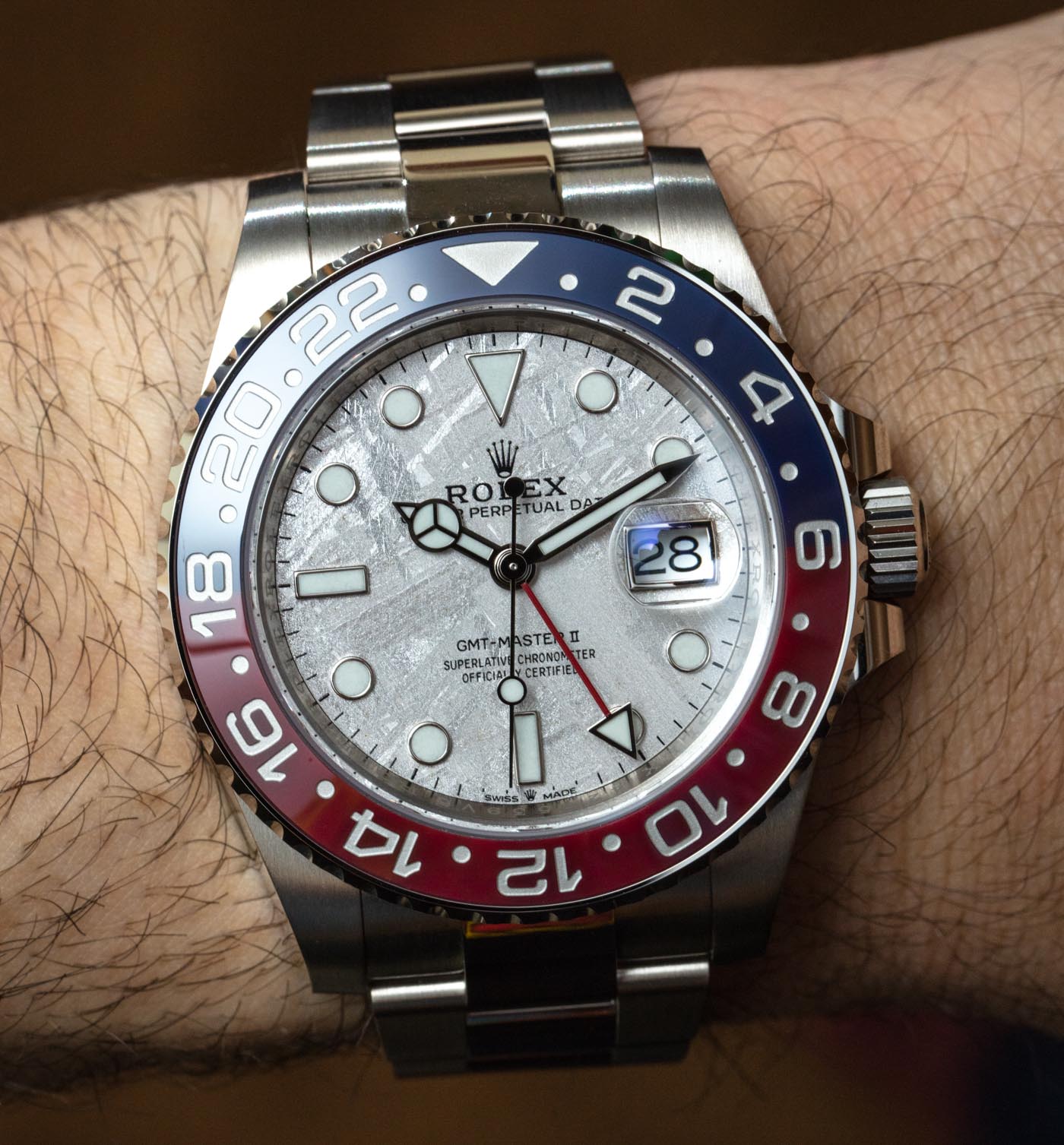
Perhaps there is, it seems, nothing else to be added to the meteorite dial option on the Rolex GMT-Master II 126719BLRO Pepsi, other than the fact that it joins an objectively narrow circle of exclusive Rolex watches to have ever been factory-fitted with a dial of extraterrestrial origin, and that it remains one of only a handful of components that Rolex is proud to use, yet has absolutely nothing to say about. Fitted with the latest generation Manufacture Rolex Calibre 3285, introduced in 2018, the 126719BLRO offers over 70 hours of power reserve and the pretty darn impressive -2/+2 second daily-accuracy tolerance that all currently produced Rolex watches are in-house tested against.
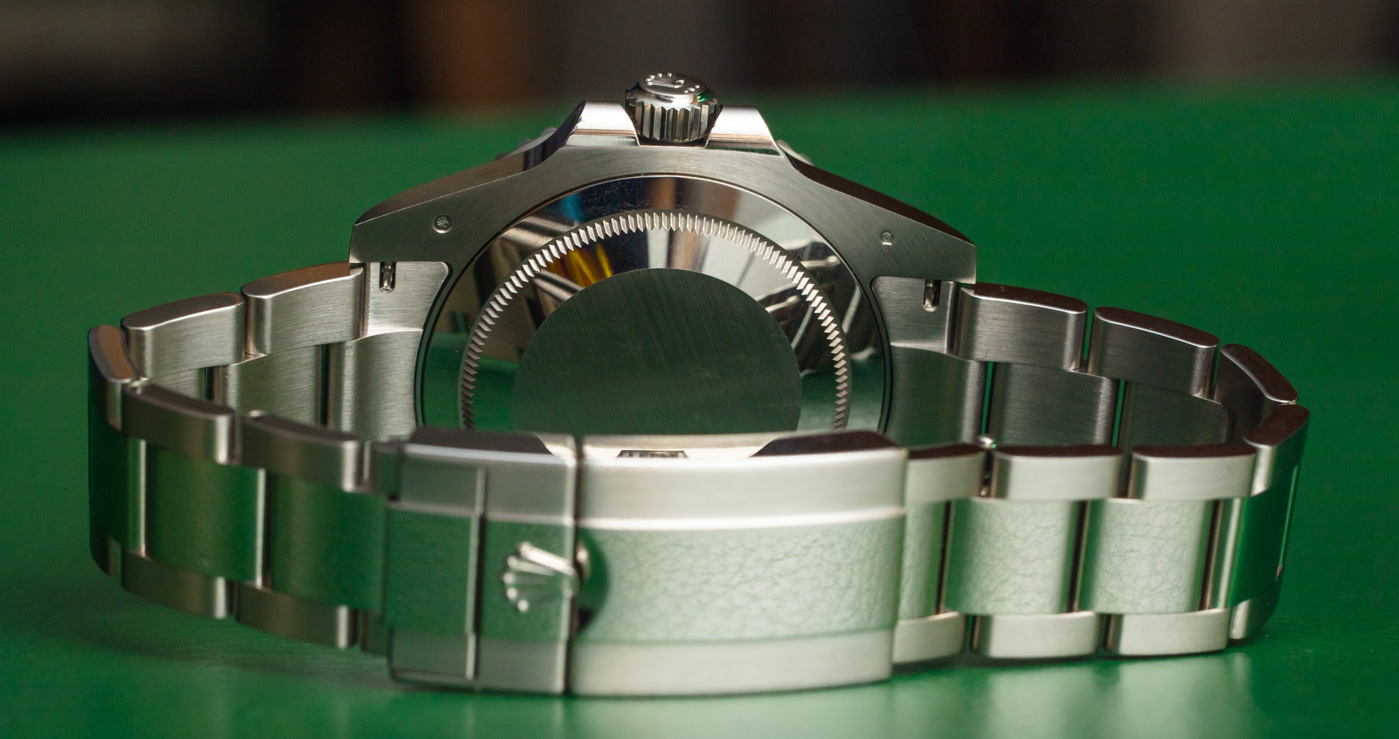
If you are into that sort of stuff, and you do have around $37,000 burning a hole in your pocket, well, now you have something much more showy to prove that you’ve got white-gold money, when compared to the hardly distinguishable mutual exclusivity of Oyster and Jubilee bracelets on one very specific Rolex model, only recognized by the nerdiest of dorks and the dorkiest of nerds.
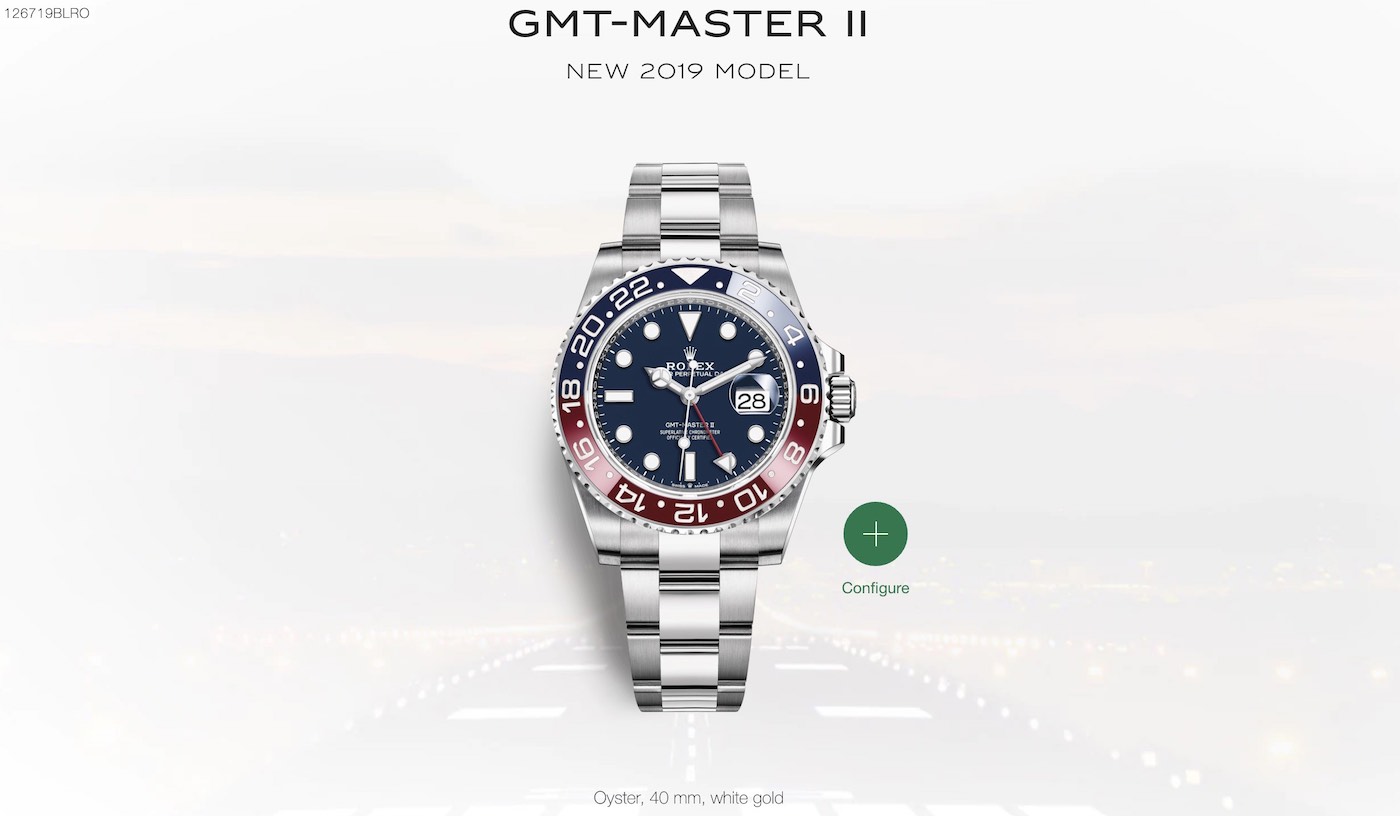
Of notable news, as brought to my attention by my friend and our Senior Editor, Bilal, is the return of the blue dial GMT-Master II Pepsi in 18ct white gold – on the Oyster bracelet, of course. This blue dial Pepsi, in this very configuration, was originally introduced at BaselWorld 2018, but just a couple months after, rumors started flying around that ADs stopped taking orders for it as it was discontinued and no longer available. That watch, as I now learned after some heated Googling (as Rolex has promptly removed it from their website, press site and everywhere else), was reference 116719BLRO-0002. As rumors took off, speculation started right along with them: these days a blue dial version of the 2018 white gold Pepsi is priced at around $50,000, whereas the black dial version of the same watch can be had for around $30,000… Now, 2019 sees the return of this piece, albeit with a tiny crown added at the 6 o’clock position – a subtle difference that hints at the updated, new-generation 3285 caliber inside this model over the 3186 in the 2018 version. Still, the “No Crown White Gold Pepsi” could have been a collectible on the often idiotic vintage market in a couple decades’ time – but the market has tried to price that premium in already.
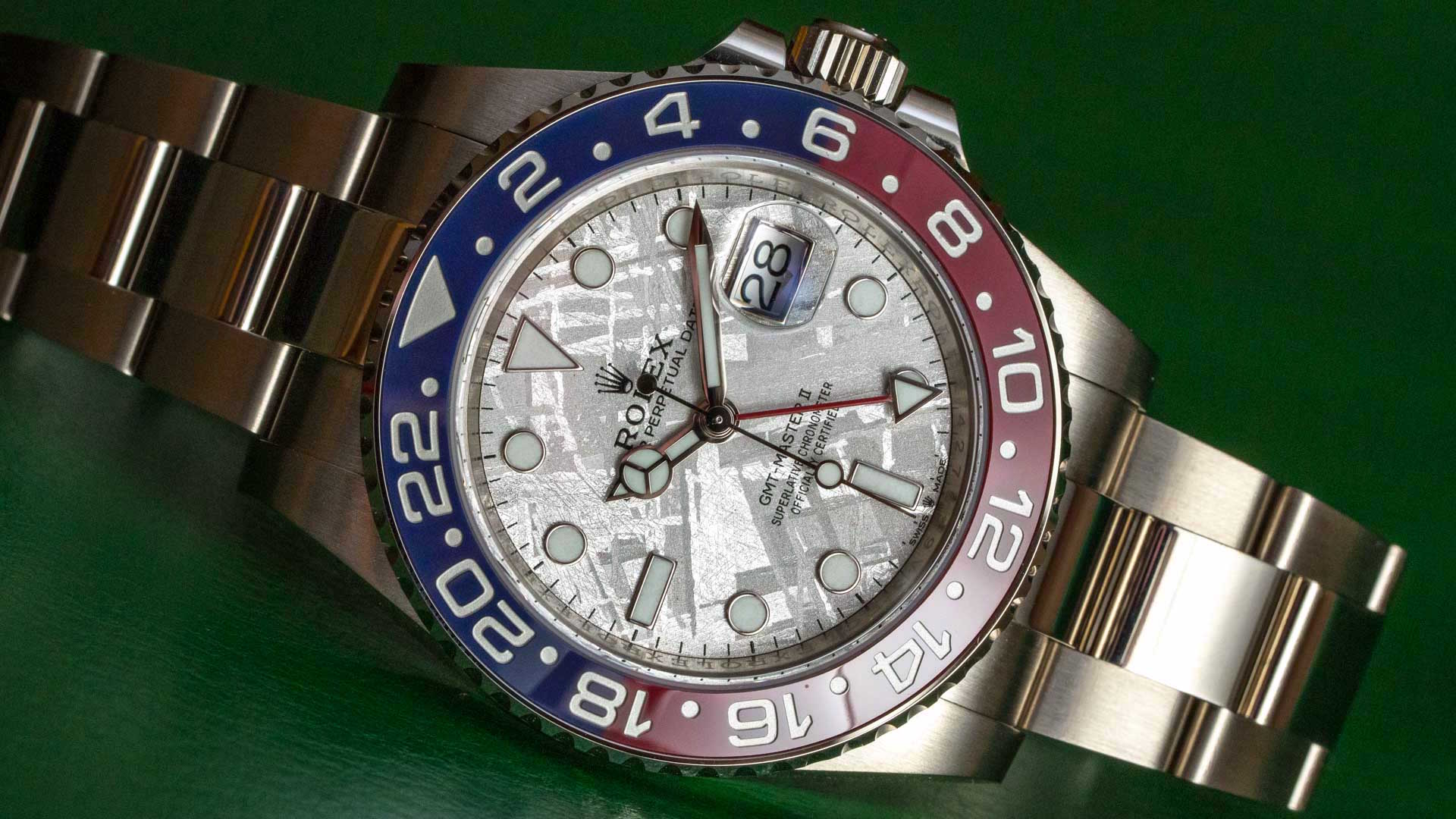
Anyhow, in closing we shall return to the meteorite dial version at hand. Whether or not this extraterrestrial dial will drive noticeable masses away from the steel option and into the space-cold braces of this white gold and meteorite model, I’ll leave to everyone’s imagination – but it definitely is one of the quirkier and more exotic all-factory Rolex watches currently out there and I kinda love it for that. Price for the Rolex GMT-Master II 126719BLRO Pepsi with meteorite dial is CHF 36,600 and you can try to learn more on Rolex’s website.

